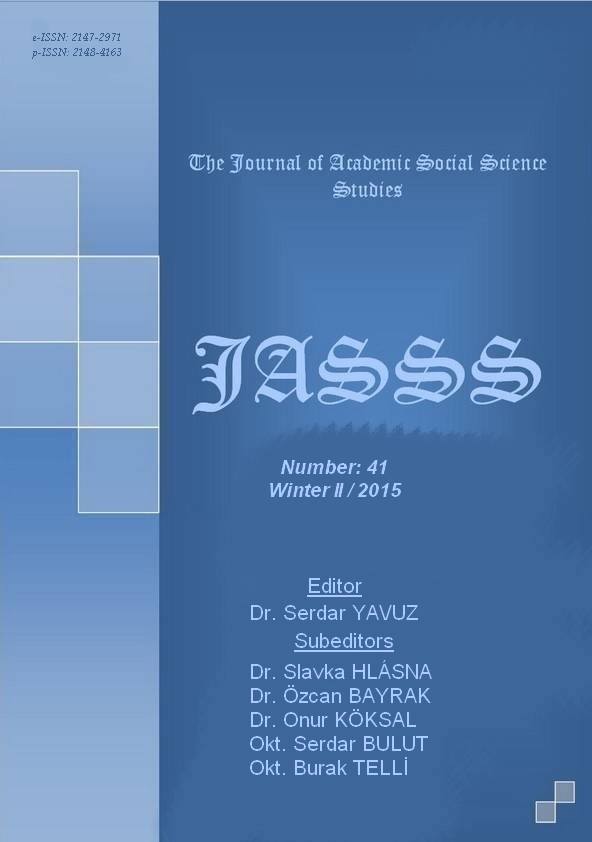TÜRKİYE’NİN SANAYİ VE TARIM POLİTİKASININ OLUŞTURULMASINDA BİRİNCİ SANAYİ VE BİRİNCİ ZİRAAT KONGRELERİNİN ETKİLERİ
Author :
Abstract
Cumhuriyeti kuran kadronun ekonomi alanındaki öncelikli amacı, kısa bir zaman içerisinde Türkiye’nin sanayi ve tarımsal üretimini artırmayı sağlamak ve bunun sonucunda kendi kendine yeten bir ekonomik yapı oluşturmaktı. Bu amaç doğrultusunda da ulusal kaynaklar harekete geçirilmeye çalışıldı. Fakat uzun savaş yıllarının yol açtığı nitelikli işgücü kaybı ve yine savaşın neden olduğu korkunç bir yoksullukla bunu başarmak hiç de kolay değildi. Bu nedenle dönemin koşullarına uygun yeni bir ekonomi politikasının belirlenmesi ve zaman yitirilmeden hayata geçirilmesi gerekiyordu. Bu alandaki ilk adım İzmir İktisat Kongresi’nin toplanmasıdır. Fakat burada kabul edilen iktisadi kalkınma ilkeleri ile istenilen başarılar elde edilememişti. Yeni kurulan rejim sanayileşme alanında kısmi başarı kazanmakla birlikte, sanayi ürünleri konusunda büyük ölçüde dışa bağımlıydı. Türkiye henüz ağırlıklı olarak bir tarım ülkesiydi. Bu durum değiştirilmediği sürece de ekonomik gelişmeyi ve toplumsal refahı artırmak imkansızdı. Bu olumsuz tablo 1929 yılında ortaya çıkan Amerika Birleşik Devletleri kaynaklı Dünya Ekonomi Krizi ile daha da kötüleşti. Bu olumsuzluklar üzerine Türkiye, bir kez daha ekonomide yeni arayışlara girmek zorunda kaldı. Birinci Sanayi ve Birinci Ziraat Kongreleri bu arayışların bir sonucu olarak ortaya çıktı. 1930 ve 1931 tarihinde toplanan bu kongrelerde, Türkiye’nin sanayi ve tarımsal alandaki mevcut sorunlarının tespiti yapılırken, bu sorunların çözüm yolları da tartışılmıştır. Bu kongreler, Türk sanayi ve tarım sektörünün o dönemdeki üretim olanaklarını, üretim çeşidini ve kalitesini göstermesi açısından önem taşımaktadır. Kongrelerde alınan kararlara bakıldığında, bu kararların hükümet tarafından dikkate alındığı ve bu alanlarda belirlenecek olan yeni politikalara yön verdiği görülmektedir.
Keywords
Abstract
The primary objective of the founding cadre of the Turkish Republic in economic field was to increase industrial and agricultural productions of Turkey within a short time and ensure that these productions construct a self sufficient economic structure. For this purpose national forces were attempted to be mobilized. But it was not easy to achieve this objective with the loss of skilled labor caused by long years of war and terrible poverty again caused by war. Therefore, a new economic policy had to be determined according to the new conditions and it had to be implemented without time loss. The first step in this field was holding İzmir Economic Congress. But the desired success could not be achieved with the principles of economic development accepted in this congress. Although the newly established regime gained partial success in industrialization it was dependent to a large extent on foreign industrial products. Turkey was still a predominantly agricultural country. As long as this situation was not changed it was impossible to increase economic development and social welfare there. This negative picture was exacerbated by the World Economic Crisis originated from the United States in 1929. Upon this negative developments Turkey once again was forced to look for new alternatives in the economy, and the First Industrial and the First Agricultural Congress emerged as a result of this search. While the existing problems of industry and agriculture were discussed in these congresses held in 1930 and in 1931, it was also discussed the ways to solve these problems. These congresses are important in terms of production possibilities of Turkish industrial and agricultural sectors, and the variety and quality of production of that period. Considering the decisions taken at these Congresses, it is seen that the decisions were taken into account by the government and they determined the new policies concerning these fields.





